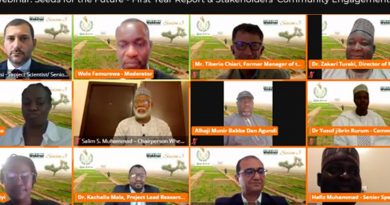FAAC:Group Expresses Apprehension Towards FG’s Fiscal Action… Demands Accountability
By Bukar Bolori
The Centre for Social Justice (CSJ), a Knowledge Institution and leading advocate for fiscal transparency and accountability, has expressed apprehension over recent developments regarding the Federation Account Allocation Committee (FAAC) and the establishment of the Infrastructure Support Fund (ISF) for the 36 states of the Federation.
In a press statement on Friday, CSJ said it takes note of FAAC’s recent resolution to save a portion of the June 2023 distributable revenue, noting that: “While it is commendable to consider saving for the future, we are keen to understand the policy or legal framework guiding this decision.”
It asked: “Is this done under the Excess Crude Account set up by the Fiscal Responsibility Act or under which law or policy framework. Therefore, the establishment of this savings fund must be based on a clear legal and policy framework showing how the funds will be managed including its distribution, accruing interest and investment by the three tiers of government.”
CSJ recalled that the Infrastructure Support Fund (ISF) set up by pronouncement is without legal or policy foundation, insisting that such a fund needs legislative authority for its establishment and operation.
It argued that the reliance on Exchange Difference revenue, which constituted the largest part of the N907 billion distributed among the three tiers of government, is not sustainable, urging the Nigerian government to prioritize diversifying revenue sources to ensure stability and reduce vulnerability to economic fluctuations, also calling on the government to explore more sustainable and viable means of revenue generation.
On the National Economic Council’s Decision on the National Social Register, the CSJ acknowledged the decision of the National Economic Council (NEC) to discard the National Social Register used by the previous administration for conditional cash transfer, citing integrity concerns, adding that: “However, we are apprehensive about the proposition that states should prepare their own registers. This approach may potentially lead to political patronage and lack of transparency.
“We advocate for the establishment of comprehensive criteria applicable across all the states of the federation, to determine the poorest of the poor, ensuring that the register is credible and truly serves its intended purpose. Furthermore, the expectation was the states should clean and correct the lapses identified in the existing register. This would not take more than one to two months.
“Starting the compilation of a fresh register by states will require not less than four months to complete at a time Nigerians are already in dire straits and need immediate action to ameliorate the hardship arising from fuel subsidy removal and unification of the exchange rate.”
CSJ also called for the reintroduction of the practice of publishing allocations to states and local governments in major newspapers and on the website of the Federal Ministry of Finance, noting that increased transparency in revenue allocation will enhance public awareness and promote accountability in the use of public resources.
CSJ urged all Nigerians, civil society organisatiins, organised labour, media, and religious leaders to actively monitor and report on the use of government revenue at the federal, state, and local levels, stating that: “By promoting transparency and discouraging the abuse of government resources, we can collectively work towards a more accountable and responsible governance system,” urging the government to adhere to the rule of law, ensure transparent allocation and usage of public funds, and prioritize sustainable revenue generation for the benefit of all Nigerians.




